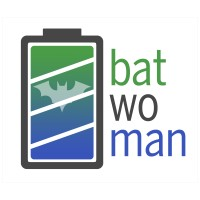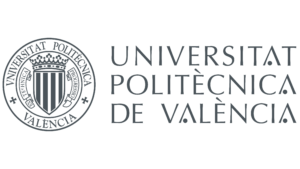
This project has received funding from the European Union’s Horizon Europe research and innovation programme under grant agreement N° 101069707.
- GIGAGREEN is a project financed with almost €4.7 million by the European Union under the Research and Innovation Framework Programme Horizon Europe aiming at developing sustainable and safe cell manufacturing processes for Li–ion batteries.
- The initiative is supported by a multidisciplinary consortium of 16 partners comprising research centres, universities, consultancy companies, material suppliers, and cell manufacturers from 8 European countries.
Turin (Italy), September 22. GIGAGREEN, a project financed by the European Union (EU) under the Research and Innovation Framework Programme Horizon Europe willing to develop sustainable and safe cell manufacturing processes, has just kicked off with a meeting held in Turin (Italy).
For 48 months, GIGAGREEN, formed by 16 partners from 8 different European countries, will work to achieve the sustainable gigafactory of the future, positioning Europe at the forefront of the global market in the Li–ion battery value chain, key for the next generation of electric vehicles.
The project proposes a structured research plan to develop and scale up novel electrode and cell component manufacturing processes that follow a Design to Manufacture (DtM) approach to attain the intended goals.
In this sense, GIGAGREEN will seek electrode manufacturing processes which deliver the maximum performance, throughput rate, safety and cost efficiency at the lowest environmental impact and energy consumption in the cell design, also facilitating the reuse and disassembly. The DtM approach, supported by digital solutions as Digital Twins, will allow for the development of easily scaled up and automated concepts solving the needs for the upcoming generation of European cell gigafactories.
In summary, GIGAGREEN will bring a tipping point for the EU cell manufacturing industry, as its outputs have been thought to contribute to a smooth transition between today’s processing methods – optimised by trial–error approaches and not ready for flexible mass production – and the Li–ion cell Factory of the Future – one based on greener, cheaper, safer, better, cleaner, digitalised, and flexible technologies.
GIGAGREEN thrives in the interfaces of the current and the new manufacturing approaches. It focuses on those points of greatest urgency: cell–electrodes processing and components that represent the highest energy and economic costs with a larger room for improvement and ground–breaking innovation.
Thanks to the advancements brought by GIGAGREEN, the EU industry will be able to (i) quickly use the results regarding water–based processing after 2026 so the performance of the industry starts immediately improving its competitiveness with materials designed and improved to operate and be processed under those conditions, and (ii) start paving the path towards dry electrode processing techniques as the next Li–ion manufacturing technology revolution.
All these innovations are supported by robust DtM approaches that rely on data–driven solutions to optimise the flexibility of factories, the scalability of the processes and the overall production lines’ sustainability in the context of mass production.
Making Europe a strategic global leader in the Li–ion battery value chain
The EU has established an ambitious industrial goal to make Europe a strategic global leader in the Li–ion battery value chain, deploying a sustainable and innovative industry.
Currently, the global cell manufacturing capacity is at 60 GWh, mainly located in Asian countries such as China, Japan, and Korea. With the market demand for batteries for electric vehicles increasing and expected to increase significantly over time up to 247 GWh in 2054 the cell manufacturing capacity needs to keep up, and it is estimated that Europe could capture 250 B€/year by 2025 if it develops fast and effectively a successful cell manufacturing industry from scratch. The increased innovation capacity of the EU cell battery value chain thanks to the adoption of water–based and dry processing of electrodes can position EU gigafactories at the forefront of the global market, led by the added value brought by the DtM principles, therefore attracting new investment and employment generation.
GIGAGREEN would be one of many projects under BATT4EU partnership working towards the establishment of a well–developed R&D landscape in Europe that can generate fruitful synergies among actors across the battery value chain and contributing to a relocation of cell production from Asia to Europe. Current champions of battery cell manufacturing, Japan, and South Korea are compared with China, best competitor in production costs, and EU countries potentially attractive to host cell manufacturing facilities. One of the initial advantages of EU countries is their close position to vehicle assembly plants and the strong automotive supply chain built during the last 20 years.
GIGAGREEN innovations will have a direct impact in improving innovation ecosystems in EU countries while reducing production costs, therefore improving the positioning of these countries when competing with the rest for the location of novel advanced cell manufacturing facilities.
About GIGAGREEN
Led by Politecnico di Torino, GIGAGREEN is formed by Sustainable Innovations, ABEE, Solvionic, Leclanche, Nanomakers, Parma University, Universitat Politècnica de València, Sintef, Inegi Porto, Cic Energigune, Arlanxeo, Alphanov, Manz Italy, CETIM and Johnson Matthey.





























